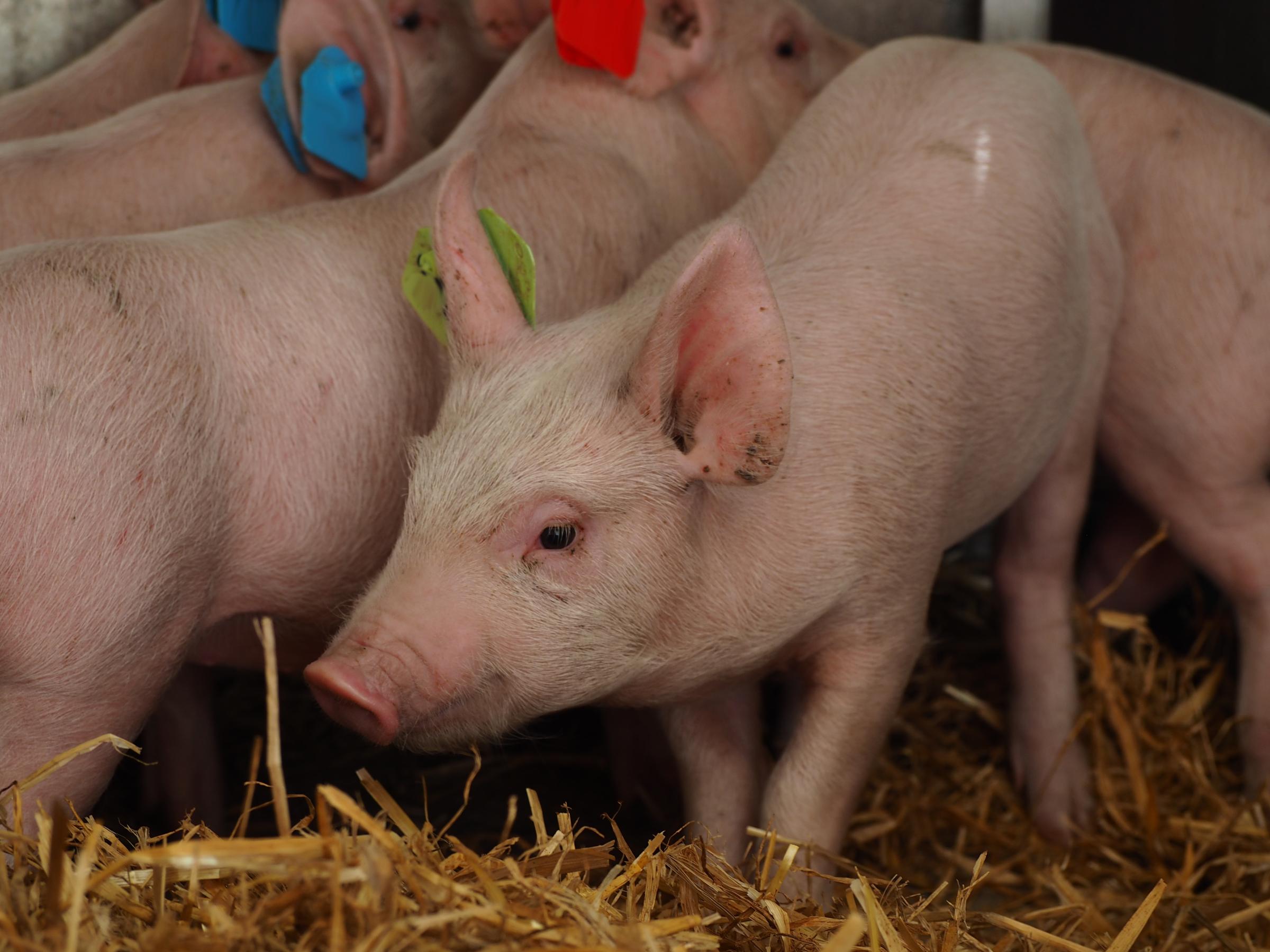First demonstration of needle-free ‘solid dose’ vaccine
Researchers at The Pirbright Institute have shown a needle-free solid dose vaccine can protect pigs against porcine reproductive and respiratory syndrome virus (PRRSV) – marking the first time the technology has been proven to work in any species.
PRRSV is one of the most economically damaging diseases in pig farming worldwide, with losses estimated to exceed $664 million annually in the USA alone. Current vaccines are not always fully protective.
Writing in the journal Vaccine, the scientists demonstrate how they tested a novel ‘prime and pull’ strategy combining a solid dose modified live (MLV) vaccine delivered without needles and a nasal boost with an inactivated vaccine.
While the nasal boost failed to enhance immunity, the solid dose vaccine was shown to provide neutralising antibody responses and strong protection against PRRSV infection – comparable to conventional needle-and-syringe vaccination. Protection was evidenced by reduced viremia, virus shedding and lung lesions in vaccinated pigs.
Needle-free vaccination offers clear advantages: reducing the risk of spreading diseases via reused needles, improving animal welfare, improving carcass quality by avoiding broken needles and eliminating the risk of needle stick injury for staff handling the animals.
Professor Simon Graham, Group Leader in Porcine Reproductive and Respiratory Syndrome (PRRS) Immunology at Pirbright, said: “This is the first time a solid dose vaccine has been shown to protect against infection in any species. It’s a step forward, not just for pig health, but for vaccine delivery technology more broadly – including for potential future use in humans.”
Robin Cohen, CEO of aVaxziPen added: “solid dose vaccines offer the potential to transform vaccine delivery, improve animal welfare and eliminate needle related risks for staff. This study builds on our extensive data set across a range of human vaccine candidates and demonstrates the broad applicability of the technology in the One Health space. We are delighted that this study clearly demonstrates that the benefits of alternative vaccine delivery models offers robust immune protection against such an important pathogen.”
Completed between July 2022 and December 2023, and involving 45 piglets, the research brought together expertise from Moredun Research Institute, The Roslin Institute, the global animal health company Zoetis, SRUC (Scotland’s Rural College), and aVaxziPen – who have developed a ‘Pig Pen’ device to allow safe on-farm multi-dosing of pigs with solid dose vaccines.
The findings build on previous Pirbright and aVaxziPen work on solid dose PRRSV vaccines and complement studies by the Roslin Institute on intranasal vaccine delivery using jet injectors.
Read the paper: https://doi.org/10.1016/j.vaccine.2025.127757
